Articles
- Page Path
- HOME > Korean J Community Nutr > Volume 18(5); 2013 > Article
-
Original Article
- A Study on Knowledge and Control Beliefs Regarding Breastfeeding of University Students by Their General Characteristics and Experienced Education in Breastfeeding
- Jo Yoon Lee, Kang Wook Lee, Wha Jin Hyun
-
Korean Journal of Community Nutrition 2013;18(5):457-466.
DOI: https://doi.org/10.5720/kjcn.2013.18.5.457
Published online: October 31, 2013
College of Tourism & Health, Joongbu University, Chungnam, Korea.
- Corresponding author: Kang Wook Lee, College of Tourism & Health, Joongbu University, 201 Daehakro, Chubu-myon, Geumsan-gun, Chungnam-do 312-940, Korea. Tel: (041) 750-6761, Fax: (041) 750-6060, kwlee@joongbu.ac.kr
Copyright © 2013 The Korean Society of Community Nutrition
This is an Open-Access article distributed under the terms of the Creative Commons Attribution Non-Commercial License (http://creativecommons.org/licenses/by-nc/3.0/) which permits unrestricted non-commercial use, distribution, and reproduction in any medium, provided the original work is properly cited.
- 1,150 Views
- 1 Download
- 2 Crossref
Figure & Data
REFERENCES
Citations

- Effects of Educational Intervention about Breastfeeding on University Students' Knowledge and Attitudes toward Breastfeeding: Focusing on Gender Differences
Jo-Yoon Lee
Korean Journal of Community Nutrition.2018; 23(1): 1. CrossRef - Belief factors associated with breastfeeding intentions of single women: Based on the theory of planned behavior
Min Kyung Jang, Seung-Min Lee, Jin Mo Khil
Journal of Nutrition and Health.2017; 50(3): 284. CrossRef
Demographic characteristics of study participants
Breastfeeding factors of the subjects
Differences in breast-feeding knowledge, attitude, and control beliefs according to demographic characteristics, breastfeeding intention and experience in breastfeeding education
1) Mean ± SD
a,b,c: Different letters are significantly different by Duncan's multiple range test
*: p < 0.05, **: p < 0.01, ***: p < 0.001
Responses to knowledge questions related to breastfeeding and lactation
1) Mean ± SD
*: p < 0.05, **: p < 0.01, ***: p < 0.001
Responses to control beliefs questions related to breastfeeding and lactation
1) Mean ± SD
*: p < 0.05, **: p < 0.01, ***: p < 0.001
Differences in breast feeding intention according to experience in breastfeeding education and non-experience in breastfeeding education
1) N (%)
Plan for exclusive breastfeeding period
1) N (%)
***: p < 0.001
1) Mean ± SD a,b,c: Different letters are significantly different by Duncan's multiple range test *: p < 0.05, **: p < 0.01, ***: p < 0.001
1) Mean ± SD *: p < 0.05, **: p < 0.01, ***: p < 0.001
1) Mean ± SD *: p < 0.05, **: p < 0.01, ***: p < 0.001
1) N (%)
1) N (%) ***: p < 0.001

 KSCN
KSCN
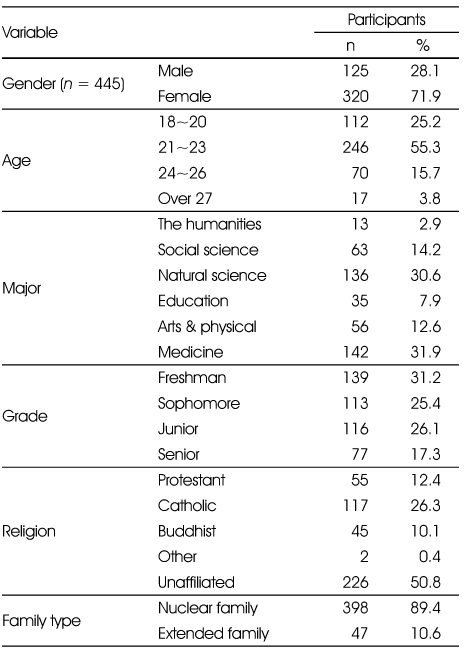
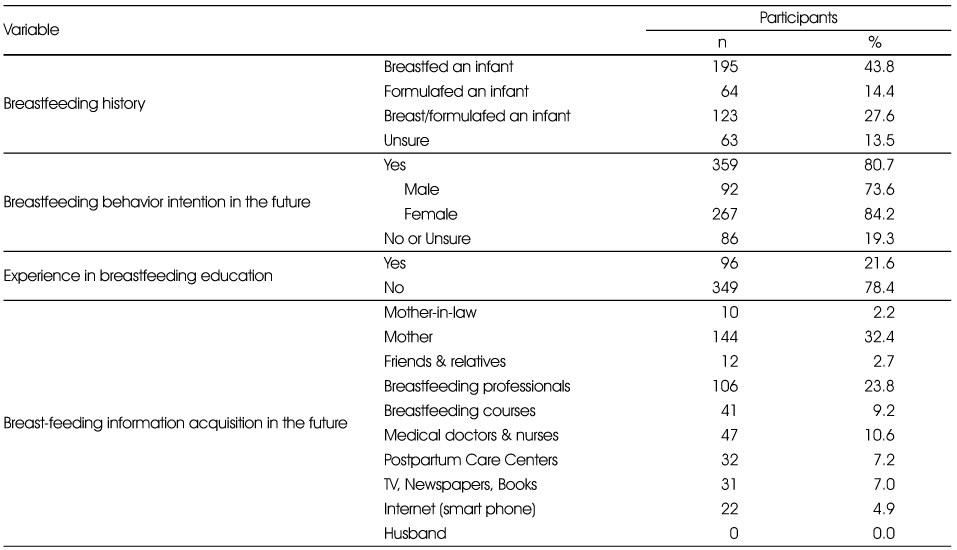
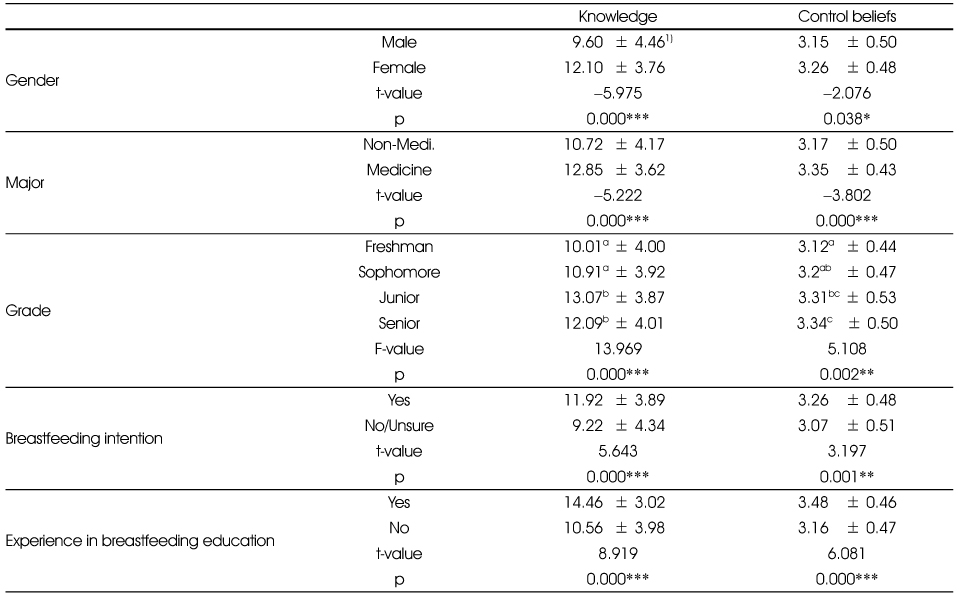
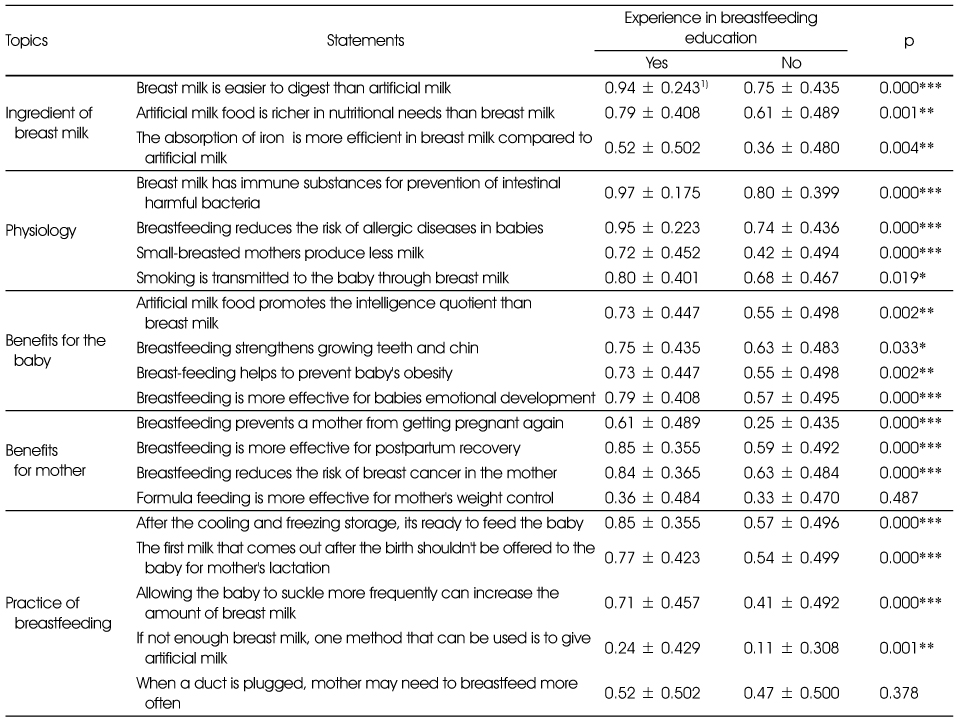
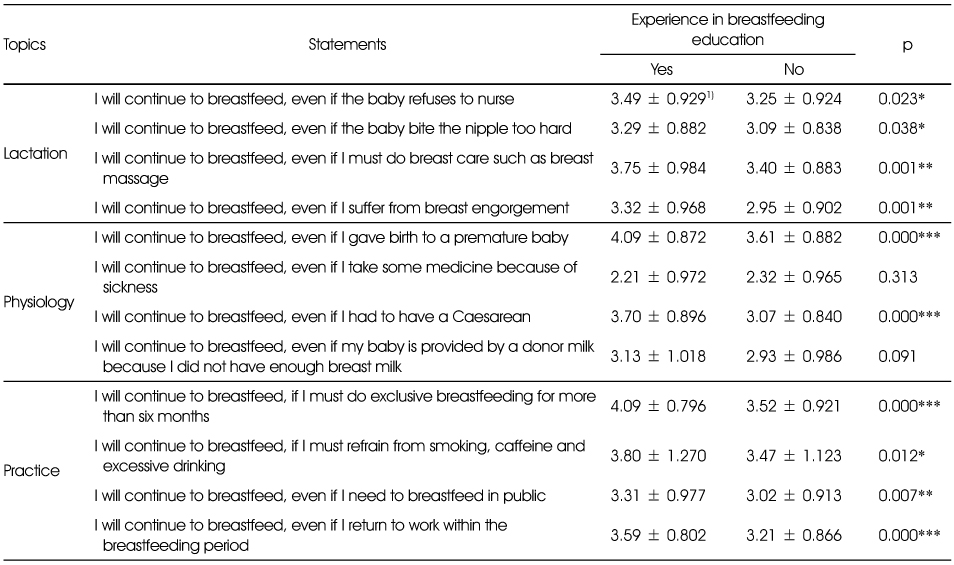


 Cite
Cite


